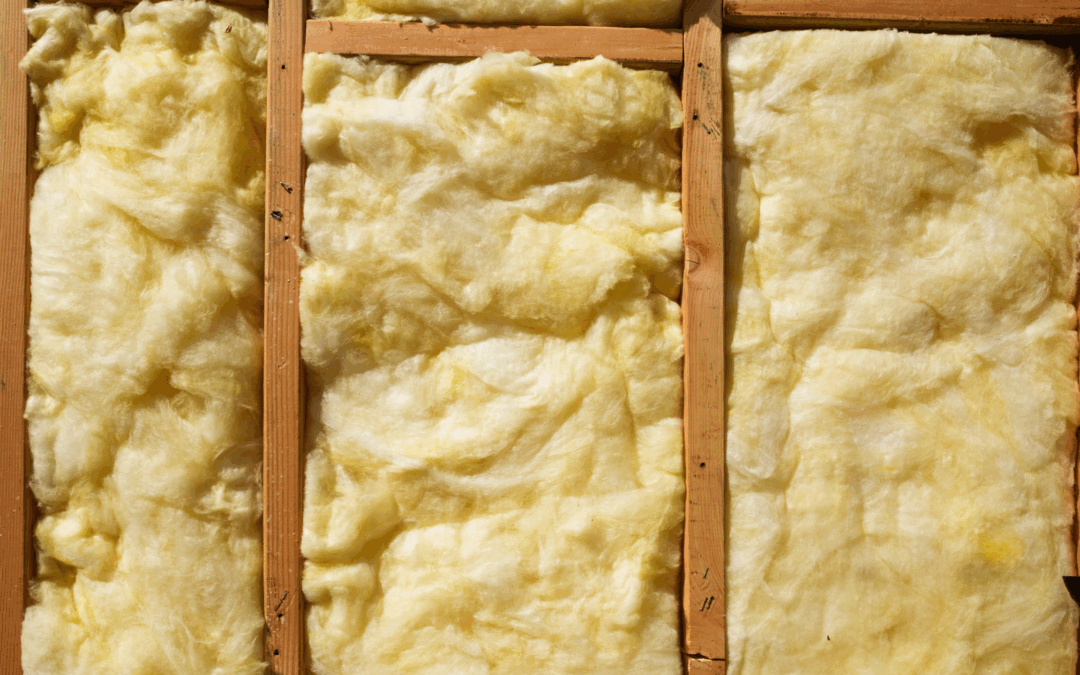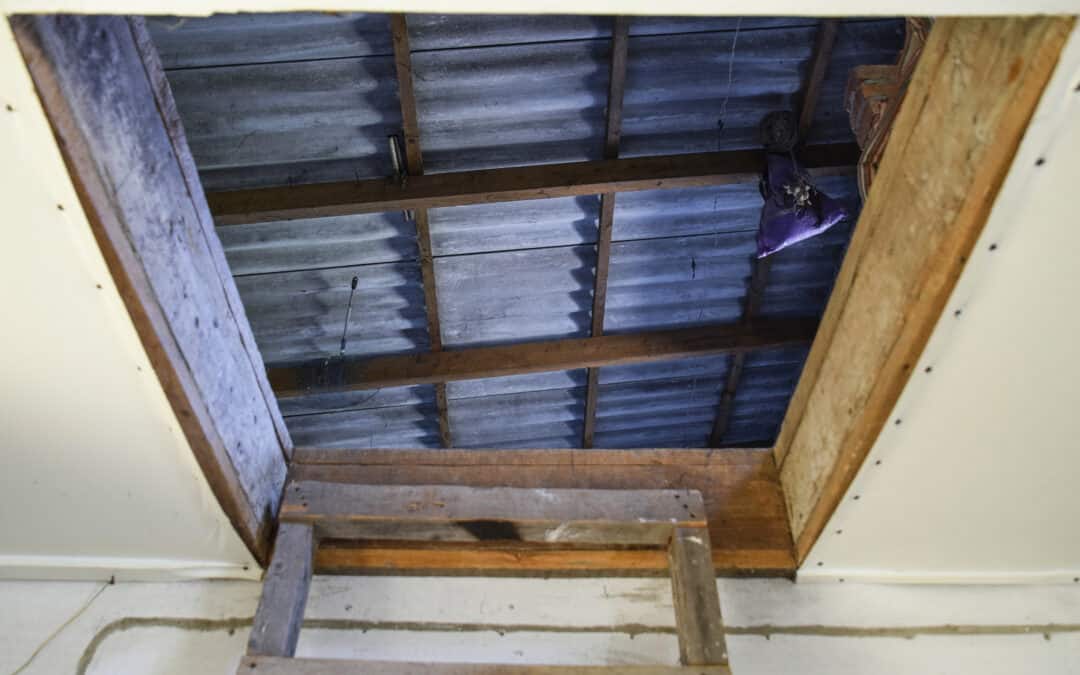READY TO GET STARTED?
REQUEST A FREE ESTIMATE
Fill out the form below or call (888) 466-7849 for a free, no-obligation estimate.

If you’ve been hearing bumps, scratches, or rustling noises coming from your attic, you’re not alone. Many South Carolina homeowners face unwelcome attic tenants, from rodents to insects, and even insulation issues that encourage these pests to stick around. To protect your home, it’s essential to know what’s causing the commotion and how to address it. Below, we’ll cover five common attic pests and how insulation problems could be making your attic the perfect place for these critters to settle.
Mice and rats are some of the most common attic invaders. These small pests can squeeze through tiny gaps in your roof or walls and quickly turn your attic into a nesting site. Once inside, they chew on wires, gnaw on wooden beams, and leave droppings that create health hazards.
Squirrels may seem cute in your backyard, but they’re far less adorable when they invade your attic. They typically enter through roof vents or damaged soffits and quickly set up nests. Left unchecked, their strong chewing habits can damage beams, ducts, and wiring.
South Carolina’s warm climate can attract bats looking for a space to roost, and your attic often fits the bill. While bats play an important role in controlling insect populations, their droppings, called guano, can pose serious health risks.
Attics are often home to a variety of insect pests, including wasps, bees, and cockroaches. Wasps and bees build nests in eaves, while cockroaches prefer warm, dark spaces near food sources. Left unchecked, these pests can lead to infestations that spread through the home.
Beyond pests, poor insulation can contribute to your attic issues. Damaged attic insulation creates a warm, inviting nest for various pests while contributing to higher energy bills and reduced home comfort.
Tackling pests and insulation issues in your attic takes a combination of prevention and professional support. Here are some tips to protect your home long-term:
By addressing these issues proactively, you can avoid costly repairs and keep your home protected, comfortable, and pest-free.
The noises in your attic may seem alarming, but they’re often a telltale sign of common attic pests or insulation problems. Whether it’s rodents, squirrels, bats, insects, or weak insulation creating the perfect habitat, taking preventive steps early on is key to maintaining a healthy home.

We can often view our Tennessee attic as just a place to store our extra belongings, but if it’s not managed or taken care of properly, our home can be negatively impacted. With fluctuating climates in Tennessee, your attic insulation should be working to keep your home either cool or warm depending on the outside temperature. If you notice that you tend to change your thermostat more often than usual, this could be a sign that your attic is poorly insulated. Let’s review the benefits of insulating your attic!
An insulated attic can ensure you and your family’s overall comfort inside! If your attic isn’t properly insulated, you might notice that your rooms fluctuate in temperature, causing you to change the thermostat and, in return, overwork your system and cause HVAC inefficiencies.
Your well-insulated attic will cool and heat your home, reducing your energy bills annually! Since your attic is insulated, your HVAC doesn’t have to work as hard to regulate your home’s temperatures, easily heating it during the winter and cooling it off during the summer. An insulated attic will also help extend the life of your HVAC system and avoid costly repairs, improving the performance and operation overall.
Insulation can act as a barrier, seal your attic, and keep unwelcome guests like roaches, ants, and other pests from entering your home. Some insulation is also coated in boric acid and can affect pests by causing a disruption to their stomachs and affect their nervous system and in return keep them from infesting. Old insulation can also harbor nests and droppings in them, which can contain disease and cause health risks to your family, making it important to update or replace your insulation.
If you’re ready to replace your attic’s insulation, consider reaching out to a pest control company near you for a free quote!

Poor attic insulation in your home can cost you hundreds of dollars every year on your heating and cooling bills. There are many benefits to insulating your attic with Northwest. We offer an energy-efficient blown-in insulation that comes with the added value of pest control. Let’s see if our attic insulation is right for you!
If you think you’re ready for updated insulation and want a free quote, give your local pest control company a call today!

The transition from winter to spring can wreak havoc on your home’s energy consumption. Living in Alabama during the early spring gives us cold mornings and hot afternoons. Changing your thermostat to keep you comfortable inside shouldn’t be a daily task. Your attic insulation should be able to properly keep your home either cool or warm depending on the outside temperature. Let’s go over the benefits of getting your home properly insulated.
Attic insulation creates pockets that slow heat or cool air from attempting to flow through your home. This will help with uneven temperatures throughout your home. Installing insulation will also help your HVAC system run more efficiently and will help cut down on the times you have to adjust the thermostat, allowing lower energy bills.
If you believe you need to replace your attic’s insulation, consider reaching out to your local Opelika pest control company for a free quote!

We all know that during the summer, attic insulation works as a heat reflector from the sun. But how does it work in the wintertime? If your attic isn’t well insulated, then the rising heat won’t stay inside the home, resulting in major energy loss for your home. Here are some tips when it comes to getting your attic insulated:
Over time attic insulation can begin to appear damaged. It could be from old age, excess moisture, or a wildlife infestation. If you think your attic’s insulation is not working like it needs to, then your best bet is to invest in replacing it. A good rule of thumb when determining it’s time to replace is noticing insulation that looks out of place, as this can cause your energy bill to spike.
Air leaks can make your insulation not as efficient as it needs to be. When insulation is installed, it’s important to ensure your attic is sealed correctly. The tiniest hole will cause your HVAC system to work overtime, causing an increase in your energy bills. The best way to discover any holes in your attic is to inspect them during the daytime when the sun will shine through them. Be sure to mend these holes with caulk to lessen the chance of moisture or critters getting in.
A home energy audit can help you detect places other than your attic that need additional insulation. It should be the first step towards getting your home on the right path to maximum energy efficiency.
Need to get your home insulated? Give our team a call and receive a free inspection today!